Where are you from, what are you doing in Turkey and what were you doing before you arrived?
My name is Alan Scott. My home town is Auckland, New Zealand. I was a high school English teacher there, and since I came to Turkey I have lived in Istanbul working in the ESL sector. I've worked in private high schools, universities and language schools, so I've got a pretty good feel for the market.
What brought you to Turkey? How long have you been in the country?
I first came to Turkey in 1995 as a result of a kind of mid-life meltdown. I went back to NZ in 1999 to sort out the mess I'd left behind. After two years back, I just couldn't fit back into life in NZ. I got a job offer back in Istanbul, and after considerable soul-searching, I returned in 2001. I make regular trips back to see friends and family, but I consider Turkey my home now.
What is the process to move to Turkey?
Unless you are financially independent and intend to buy property in Turkey, it's better to find a job and apply for a work permit before leaving your own country. If you have a job offer, your prospective employer will probably take care of the bureaucratic business.
What is your favourite thing about Turkey, and what is your least favourite thing?

I love Turkey: the people, the food, the history, the diversity of cultures, the proximity to Europe, the Middle East and Africa, and the challenge of learning the language. The education system in Turkey is pretty chaotic despite numerous attempts by governments to fix it. But it has provided me a good living over the years, so I can't complain too much.
What has surprised you the most about Turkey?
Living here has challenged many of the assumptions I had about the world. I realised how Euro/Western-centred my education had been. Just one example: Anzac Day, 25 April, is one of the most important days in the year in NZ. We commemorate the landing of NZ and Australian soldiers on the Gallipoli Peninsula in 1915. When I came to Turkey I found that they were celebrating their victory in that campaign on 18 March – before we even got here! Work that one out!
What are the features of today's expat job market in Turkey?
I can only speak for the education sector. It's not as good as it used to be, in terms of salaries, holidays and leisure time, but there are plenty of opportunities. Native speakers of English are in demand in primary schools, high schools, universities and schools for adult learners. Once you get a job you can look around, suss out the market, and maybe find something more suitable.
How easy or difficult it is to find accommodation in Turkey, and what type of accommodation is available for expats?
Some schools provide accommodation for new arrivals, or financial assistance to find your own place. It pays to ask before you arrive (see above). There is plenty of rental accommodation available, but rents are going up in the more desirable areas of Istanbul. Also, the language barrier can be a problem for new-comers. English is not widely spoken outside the tourist areas and the private schools.
What are the year's biggest holidays in Turkey? What is some essential etiquette in Turkey?
Forget about Christmas, New Year and Easter – life doesn't stop here. Some schools give “Christian” teachers Christmas day off, and New Year's Day is a holiday. There are two big Muslim “bayrams” – Ramadan (Ramazan) and Kurban (Sacrificial Feast). They are tied to the Lunar calendar so they move forward 10 days each year. At present they are happening in June and July.
Etiquette? Keep your eyes and ears open and be sensitive to local practices. Be patient. Don't get into fights or arguments with locals. Don't get drunk in public places. Don't eat in public during the Ramadan fast. Read a guide book and follow their advice.
How do you find the lifestyle in Turkey?

Incredibly varied. You can live cheaply or you can spend money like water. Shop around. Get to know some locals. Once you get out of the big city, your money will go further. You can't get bored in Istanbul – there is always something to do, and the streets are always busy. You can easily find cheap or even free things to do.
How is the transportation system in Turkey? How do you move around?
Public transport is great and relatively inexpensive. You don't need a car - in Istanbul you are much better off not driving. Get an IETT Istanbul Card, top it up and you can use it on buses, ferries, the Metro. Inter-city coaches are inexpensive and comfortable. Most have free WiFi. Off-peak local airfares are very reasonable.
Have you been able to adapt to Turkey and the society there?
Yes – I have a Turkish partner. We've been together for ten years. I speak the language reasonably well and I've travelled extensively around the country. We have our own house in Istanbul and a holiday place near Bodrum. I have a better life here than I could have in NZ.
How is everyday life for you in Turkey?
I work five days, with Thursday and Friday off. Shopping is easy – there are local shops and supermarkets within short walking distance, and a weekly market where we buy fresh fruit and vegetables. There are plenty of parks – we have a huge new one on the waterfront near home where we cycle. You can hire a bike if you don't have your own.
What new habits have you developed in Turkey? And what old habits have you quit?
There is a saying in Turkish that you become a different person when you speak another language, and I would say this is true. It's a very mind-opening, liberating experience. Some restaurants serve alcohol and some don't. I have learned to enjoy a meal out without drinking (sometimes). I had to adjust to apartment living – but now I am totally used to it. I wouldn't want to return to the old days of lawn-mowing and house maintenance. I stopped putting milk in my tea!
What is something that you would like to do in Turkey but haven't had the opportunity to do yet?
There is one road I haven't travelled: out east through Sivas and Erzurum to the ancient ruined city of Ani.
Share your most memorable experience in Turkey.

Too many to name! Seeing Kapadokya (Cappadocia) is a must. Visiting the Black Sea coast and getting up into the mountain yaylas. Seeing Sumela monastery. Buying a flat in Istanbul and a summer house in Bodrum. Meeting my wonderful partner, Dilek.
What do you think of the local cuisine? What are your favourite dishes?
I love Turkish food! There is so much variety. They do wonderful things with vegetables: mezes and olive oil dishes. If you're a meat-eater, there are endless kinds of kebab. And the desserts! Absolute paradise if you have a sweet tooth. I particularly love künefe (no description can do it justice – just ask for it) and ayva tatlısı (made with quince).
What do you miss the most about your home country?
The natural environment in New Zealand is incomparable. I love our virgin forests, lakes, rivers and West Coast beaches. I'm fortunate that I can get back every year.
What motivated you to create your blog 'Turkey File'?
I had so much to say about Turkey, Dilek's daughter said I should start a blog. At the time I had no idea what a blog was – that was 8 years ago. Since then I've published two books using material from the blog. I write about history, local cultures, music, archaeology, politics, economics – anything I find interesting. I guess my main motivation was the shift in mental gears I had to make after coming to live in Turkey – searching for answers to questions I hadn't really thought about before. In short, I'm looking at Turkey through the eyes of a sympathetic foreigner.
Give us some useful tips that soon-to-be expatriates in Turkey will benefit from.
Try to learn the language – it'll make your life so much easier. Be prepared to leave your assumptions and prejudices about the country and its people aside until you've taken the trouble to see things for yourself. Enjoy the food. See the country outside of Istanbul.
What is one thing that you will take with you from Turkey?
I'm not planning to leave. If I did, I would take a broader mind, and a Turkey-shaped hole in my heart.
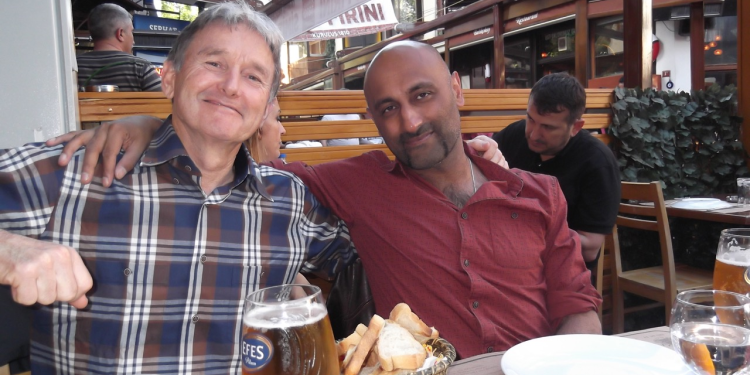
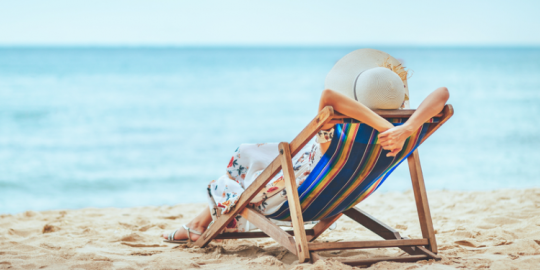



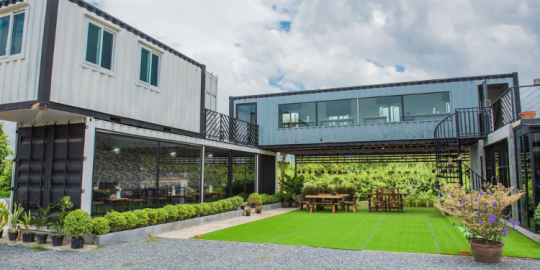
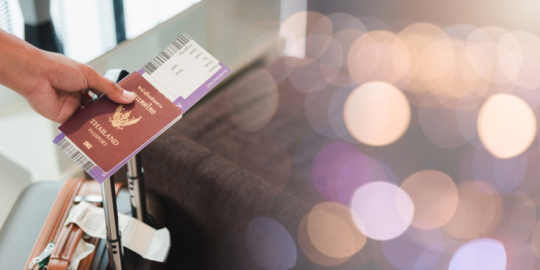


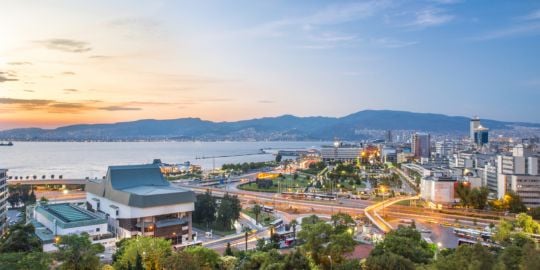

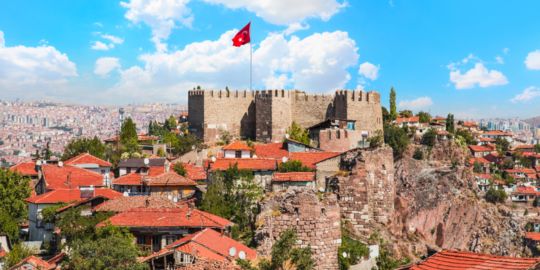





Contact us to be featured in the Interviews section.
Participate